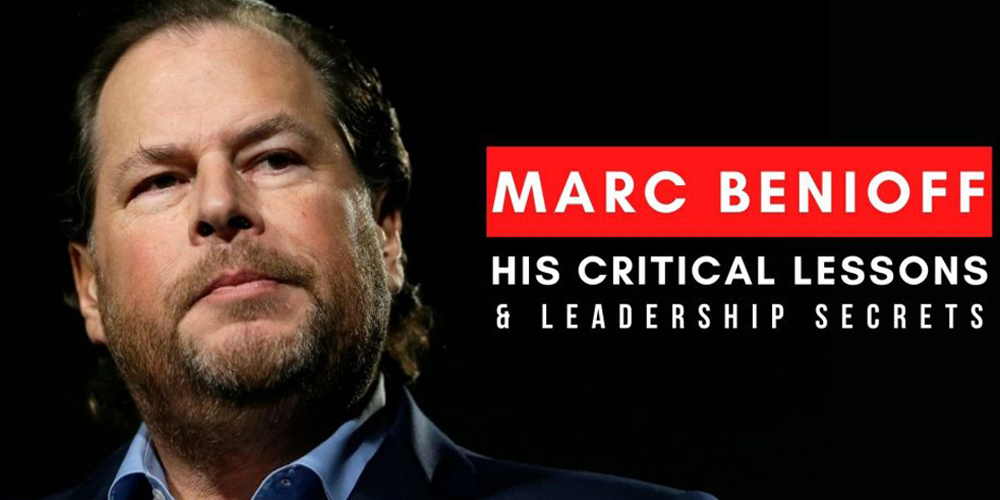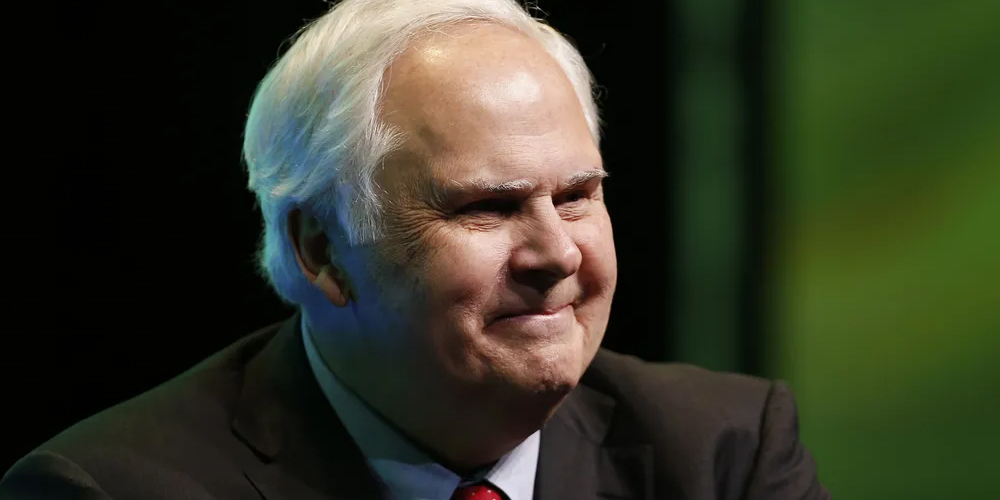Marc Benioff is a name synonymous with innovation, leadership, and transformative corporate culture. As the co-founder, chairman, and CEO of Salesforce, one of the world’s leading customer relationship management (CRM) software companies, Benioff has not only revolutionized the tech industry but also pioneered a new approach to corporate culture that emphasizes values, social responsibility, and a focus on the employee experience. His influence extends far beyond business success, as his vision for a company rooted in equality, philanthropy, and sustainability has redefined what it means to lead in today’s business world.
In this article, we’ll explore how Marc Benioff has shaped modern corporate culture, both at Salesforce and across the global business landscape.
1. Benioff’s Vision for Salesforce
Marc Benioff co-founded Salesforce in 1999 with the mission to create a software company that would provide business solutions without the need for expensive hardware. He was a pioneer in the concept of Software as a Service (SaaS), transforming how businesses manage customer data. Salesforce’s cloud-based CRM system has become a global leader, fundamentally changing the way organizations interact with their customers.
However, Benioff’s vision for Salesforce extended beyond technological innovation. From the start, he made it clear that the company would not just be focused on profits, but also on making a positive impact on society. His approach emphasized the integration of technology and philanthropy, and he became an advocate for a more human-centered business model.
2. The 1-1-1 Philanthropic Model
One of the most defining aspects of Salesforce’s corporate culture under Benioff’s leadership is its commitment to philanthropy. The company introduced the 1-1-1 philanthropic model, which commits 1% of Salesforce’s equity, 1% of its product, and 1% of its employees’ time to charitable causes. This innovative approach has set the company apart and inspired other businesses to follow suit.
Through the 1-1-1 model, Salesforce employees are encouraged to give back to their communities, and the company actively supports nonprofits and initiatives worldwide. The model has had a significant impact, with Salesforce employees volunteering millions of hours to causes they care about. Benioff’s leadership has made corporate social responsibility a central component of the Salesforce brand, and this model has influenced other companies to consider their roles in solving global challenges.
3. Emphasis on Equality and Diversity
Another cornerstone of Marc Benioff’s leadership has been his commitment to equality and diversity within Salesforce. Benioff is a vocal advocate for gender equality, racial diversity, and inclusion. In 2015, he made headlines when he pledged to address gender pay gaps within Salesforce, announcing that the company would conduct an internal audit to ensure equal pay for equal work. This was a groundbreaking move, highlighting Benioff’s commitment to fairness and equality.
Salesforce has continued to make strides in diversity and inclusion, with a focus on creating an environment where all employees, regardless of their background, feel valued and empowered. Benioff’s commitment to this cause is reflected in Salesforce’s corporate policies, hiring practices, and internal culture. He has also been a vocal supporter of LGBTQ+ rights, making Salesforce one of the most progressive companies in the tech industry when it comes to diversity and inclusion.

4. Employee Well-Being and Mental Health
Benioff has been a strong proponent of improving employee well-being and mental health in the workplace. Under his leadership, Salesforce has created a corporate culture where employee satisfaction is a top priority. Benioff has publicly spoken about the importance of work-life balance and the need for companies to support their employees in every aspect of their lives.
Salesforce offers extensive benefits to its employees, including mental health resources, paid volunteer time off, wellness programs, and a supportive work environment. This emphasis on mental health and overall well-being is a reflection of Benioff’s belief that a company’s success is intrinsically linked to the happiness and satisfaction of its employees.
5. A Focus on Transparency and Ethical Leadership
Marc Benioff is known for his transparent leadership style, which has become a key aspect of his approach to corporate culture. He believes in openly communicating with employees, customers, and stakeholders about the company’s goals, successes, and challenges. This openness fosters trust and loyalty, two essential ingredients for building a positive and engaged workforce.
Benioff is also deeply committed to ethical leadership. He has consistently emphasized the importance of companies using their influence to drive positive change in society, particularly in areas such as climate change, social justice, and economic inequality. Benioff’s ethical stance has led Salesforce to take bold positions on important social issues, from advocating for gun control to opposing anti-LGBTQ+ legislation.
6. The Role of Technology in Social Good
One of Benioff’s core beliefs is that technology can be a force for good. Under his leadership, Salesforce has become a leader in using technology to address social issues. The company’s cloud-based platforms and data analytics capabilities have been leveraged by nonprofits, educational institutions, and governments to solve pressing societal problems.
Salesforce’s technology has been used in areas ranging from disaster relief to healthcare to environmental sustainability. Benioff has repeatedly emphasized that businesses have a responsibility to use their resources and technology to make a positive impact on the world, rather than just focusing on profits.
7. Marc Benioff’s Influence Beyond Salesforce
Benioff’s impact on corporate culture extends beyond Salesforce. He is an influential thought leader and a sought-after speaker, often sharing his insights on business, leadership, and social responsibility. His ideas have influenced a generation of entrepreneurs and executives, particularly in the tech industry.
Benioff has also been involved in various philanthropic endeavors outside of Salesforce. He has been a vocal advocate for improving healthcare and education in the United States and has donated substantial amounts of money to causes such as the fight against homelessness in San Francisco. Through his personal and professional actions, Benioff has set a high bar for what it means to be a socially responsible and ethical business leader.
8. Conclusion
Marc Benioff’s role in shaping modern corporate culture cannot be overstated. His visionary leadership at Salesforce has helped redefine the role of business in society, showing that companies can be both profitable and socially responsible. By prioritizing philanthropy, equality, employee well-being, and ethical leadership, Benioff has created a corporate culture that values people over profits and encourages other businesses to do the same.
Benioff’s approach to leadership is a model for the future, where companies are not only measured by their financial success but also by the positive impact they have on their employees, customers, and the world at large. His legacy will undoubtedly continue to shape the way businesses approach corporate culture, leadership, and social responsibility for years to come.






